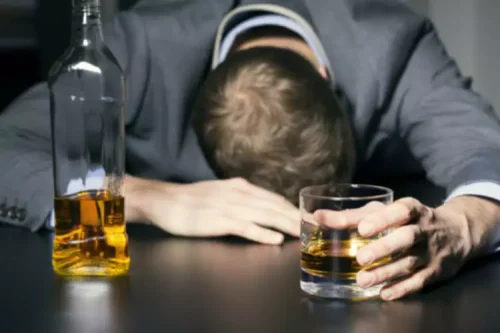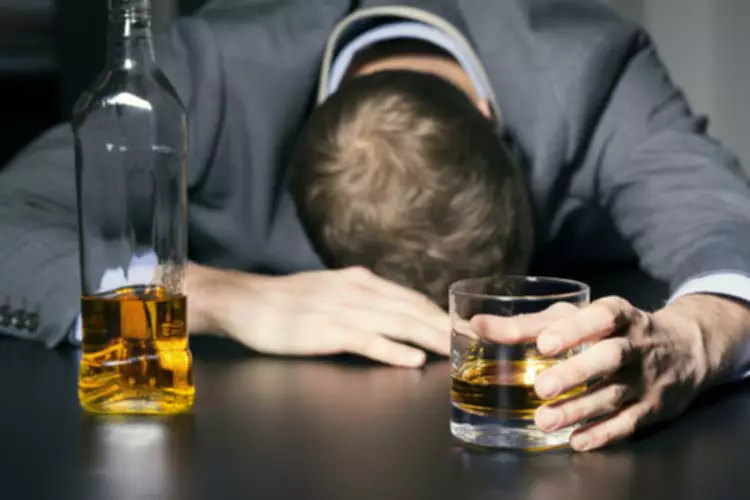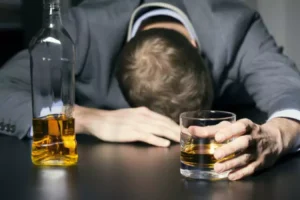
Experiencing body tremors when waking up might be a sign of a more serious condition, although that’s not always the case. A little bit of shaking after drinking can feel unpleasant, but it usually isn’t anything to worry about it. Try to take it easy for the day and make sure to drink plenty of fluids and eat something. Why do hangover shakes happen, and are they a sign of anything serious? Read on to find out and pick up a few tips to help yourself feel better.

You guys care, you really do. This isn’t just a machine.
Alcohol shakes usually affect the hands but they can also impact the arms, legs and other body parts. They aren’t easy to control as they are caused by the part of your brain in charge of muscle function reacting to the alcohol leaving your body. Hangover shakes are a common reminder that you might have overdone it the night before. They happen because alcohol throws your brain and body out of whack — messing with things like your brain chemicals, fluid balance, and sleep.
How To Reduce Alcohol Tremors in Recovering Alcoholics
- Alcohol shakes occur after the depressant effect of alcohol wears off, and the brain experiences overwhelming activity.
- It’s important to remember that even if you don’t feel drunk, consuming too much alcohol can still lead to trembling hands.
- Stopping alcohol cold turkey can be risky, especially for heavy drinkers.
For example, if the symptoms stem from dehydration, drinking more water should resolve the problem. Likewise, some chronic conditions that cause these symptoms might improve when a person engages in healthy lifestyle habits. Over time, the brain adjusts to this alcohol-induced change by producing less GABA and more glutamate to maintain balance. If you suddenly stop drinking, your brain is left with too little of the calming chemical and too much of the stimulating one. It’s always recommended that alcohol withdrawal takes place as part of a medically assisted detox so that the right care and support can be provided when it’s needed.
GABA and Glutamate Imbalance

Alcohol is a depressant, which is a substance that reduces activity in the brain and interferes with its communication pathways. Drinking alcoholic beverages slows down brain functions and inhibits certain chemicals that help regulate mood. In conclusion, while some post-coffee shaking may be normal in humans, it shouldn’t be a constant struggle. By implementing the right strategies and understanding your body’s needs, you can continue to savor coffee as a delightful part of your daily routine.

You may also move more slowly, have alcohol rehab trouble with balance, or find that your arms and legs stiffen up. The main treatment for Parkinson’s tremors is medication and sometimes surgery for better muscle control. Each day, take time to revisit your recovery goals and the reasons you decided to stop using alcohol. After discharge from treatment, follow-up aftercare is vital for successful long-term recovery. The best chance for a successful, long-term alcohol recovery means committing to an effective alcohol treatment program. It also means committing to lifestyle changes that will keep you physically and mentally healthy, and alcohol free.
Drink lots of water and other non-caffeinated beverages

And if you regularly wake up shaking, it’s best to see your doctor to get to the bottom of it. If you don’t have those on hand, soft drinks or candy could do the trick, but make sure they’re not of the low-sugar or sugar-free variety. As the alcohol leaves your body, however, your central nervous system, along with part of your sympathetic nervous system, remains unbalanced.
- Shaking after drinking alcohol is more than just an uncomfortable side effect—it’s a sign that your body is struggling to cope with the effects of alcohol.
- When they examine themselves in the mirror, they may not recognize themselves.
- It is important to note that excessive electrolyte intake should be avoided, as it can have adverse effects on the body.
- Your doctor will ask you if drinking worsens or improves your tremors, as a means of trying to determine if alcohol is to blame for the involuntary movements.
Alcohol is a diuretic, which means it increases urine production and can lead to dehydration. To stay hydrated and minimize the severity of shakes, drink water between alcoholic beverages. This helps to maintain a healthy shaking in the morning after drinking fluid balance and replenish the body’s water stores. For every alcoholic drink consumed, aim to drink an equal amount of water. Electrolytes, such as potassium, sodium, and magnesium, play a vital role in regulating muscle and nerve function.

What Are Alcohol Shakes Causes & Effects?
- Gradually adjusting your intake can help you establish a safe amount while minimizing adverse effects.
- However, if you notice a pattern of persistent shaking, heightened anxiety, or other concerning symptoms, it is advisable to consult a healthcare professional.
- Medically-supervised detox followed by an inpatient treatment program can increase the likelihood of successful recovery and help people regain control.
Alcoholism is a disease that slowly develops over time, not all at once. While everyone may experience this progression differently, there are four common stages people go through when becoming a functional alcoholic. Family and close friends who understand and support your recovery goals are an invaluable asset to recovery. Many of those recovering from substance use feel alone in their struggle for sobriety. The more people in your personal network that you trust to support your journey, the more likely you are to be successful.
